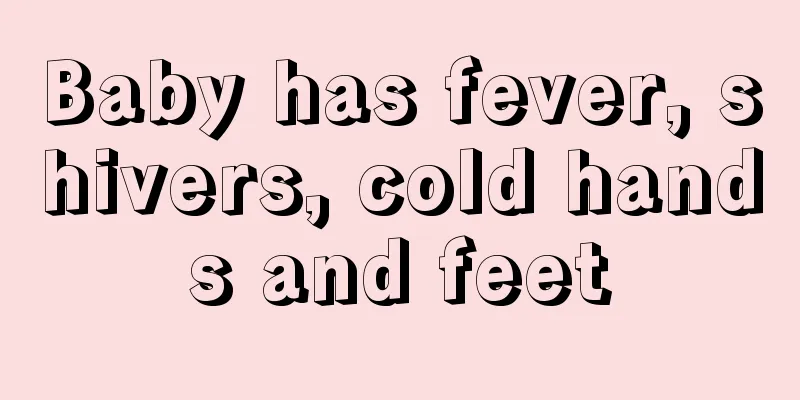A child has a hole in his heart

|
Babies are the hope of parents. Parents will spend more energy on their children and pay more attention to their children's physical problems. Because people are very concerned about children's hearts, they will listen to the sound of children's heartbeats from time to time. Sometimes, parents go to the hospital and find that their child has a hole in his or her heart, which may be due to congenital heredity. Heart murmur is a sound produced between each heartbeat. The heartbeat is generally "thump, thump." Under normal circumstances, there is quiet between "thump" and "beat" or between "beat" and the next "thump." When any sound occurs, it is called a heart murmur.Heart murmurs are common and are normal in most cases. This sound is produced by the normal pumping of blood by a healthy heart and is called a functional heart murmur. It does not require treatment. Another small number of murmurs are congenital heart diseases, which are caused by abnormal heart structure, such as septal defects or ectopic or malformed great vessels. This murmur is pathological and requires surgical intervention. If a baby has a heart murmur, the baby should be seen by a cardiologist to first determine the nature of the murmur (systolic, diastolic or biphasic) and grade (6 grades in total). Secondly, the associated symptoms (shortness of breath, fast or slow heart rate, blood pressure, cyanosis, etc.) and whether the baby is growing normally should be observed.It is also necessary to do cardiac B-ultrasound and other examinations to determine whether the heart murmur is a physiological murmur or a pathological cause, and whether it is a congenital heart disease. Experts will give you the right advice. Clinically, murmurs are generally divided into 6 grades, and most of those above grade 3 are generally of pathological significance. Many newborns have heart murmurs, most of which are softer physiological murmurs below grade 3. In some cases, the heart murmurs of congenital heart disease are also below grade 3. Cardiac ultrasound can determine whether there are any abnormalities in the structure of the heart and rule out congenital heart disease. First of all, everyone needs to understand that congenitality does not mean hereditary. According to research, 5% of the causes of congenital heart disease are related to genetics. However, it is worth noting that if congenital heart disease patients occur in the same family and their diseases are the same or similar, it may be caused by genetic abnormalities or chromosomal aberrations. In other words, some hereditary congenital heart diseases are often related to chromosomal abnormalities. In addition to heart disease, these patients may also have other systemic diseases, including intellectual disability, immune deficiency, etc. In fact, environmental factors that are more closely associated with congenital heart disease account for a larger proportion, mainly:1. Early intrauterine infection of pregnant mothers, such as rubella, influenza, and Coxsackie virus infection; 2. The pregnant mother has a history of high-dose radiation exposure and medication; 3. Metabolic disorders, such as diabetes during pregnancy; 4. Chronic diseases that can cause intrauterine hypoxia; 5. Alcoholism and drug abuse by pregnant mothers in the early stages of pregnancy. |
<<: What kind of yogurt is best for children?
>>: What is missing when a child bites others?
Recommend
What to do if your child grows too fast
Children nowadays generally suffer from precociou...
Four methods of early education for 2 and a half year old babies
With the improvement of my country's cultural...
What is the best way to treat stuttering in children?
Every baby is the center of our family, so whethe...
Why is the area where my baby got the vaccination red and swollen?
For parents, it is very necessary to take their b...
How to determine if your baby has a stuffy nose? In fact, the method is very simple
Many young people do not know how to take care of...
At what age is it better for children to use pillows?
Parents are of course more concerned about their ...
Antipyretic medicine for infants and young children
I believe that many parents are very troubled whe...
Will children also have high blood pressure?
High blood pressure mostly occurs in middle-aged ...
What causes intussusception in children?
Many parents will find that their children’s diet...
Baby will like pork liver more if you cook it this way
Pork liver is rich in vitamins and various nutrie...
Can acute hemiplegia in children be cured?
Acute hemiplegia in children is a brain disease, ...
Why is the back of the baby's head hot?
Families are very concerned about the healthy gro...
What are the reasons why children can't breathe when they cry?
Children are the future of a family. Many parents...
The cause of vitiligo in children is related to genetics
Vitiligo in children is a disease that occurs at ...
How many days does it take for a child's synovitis to heal?
Many people think that children will not suffer f...









